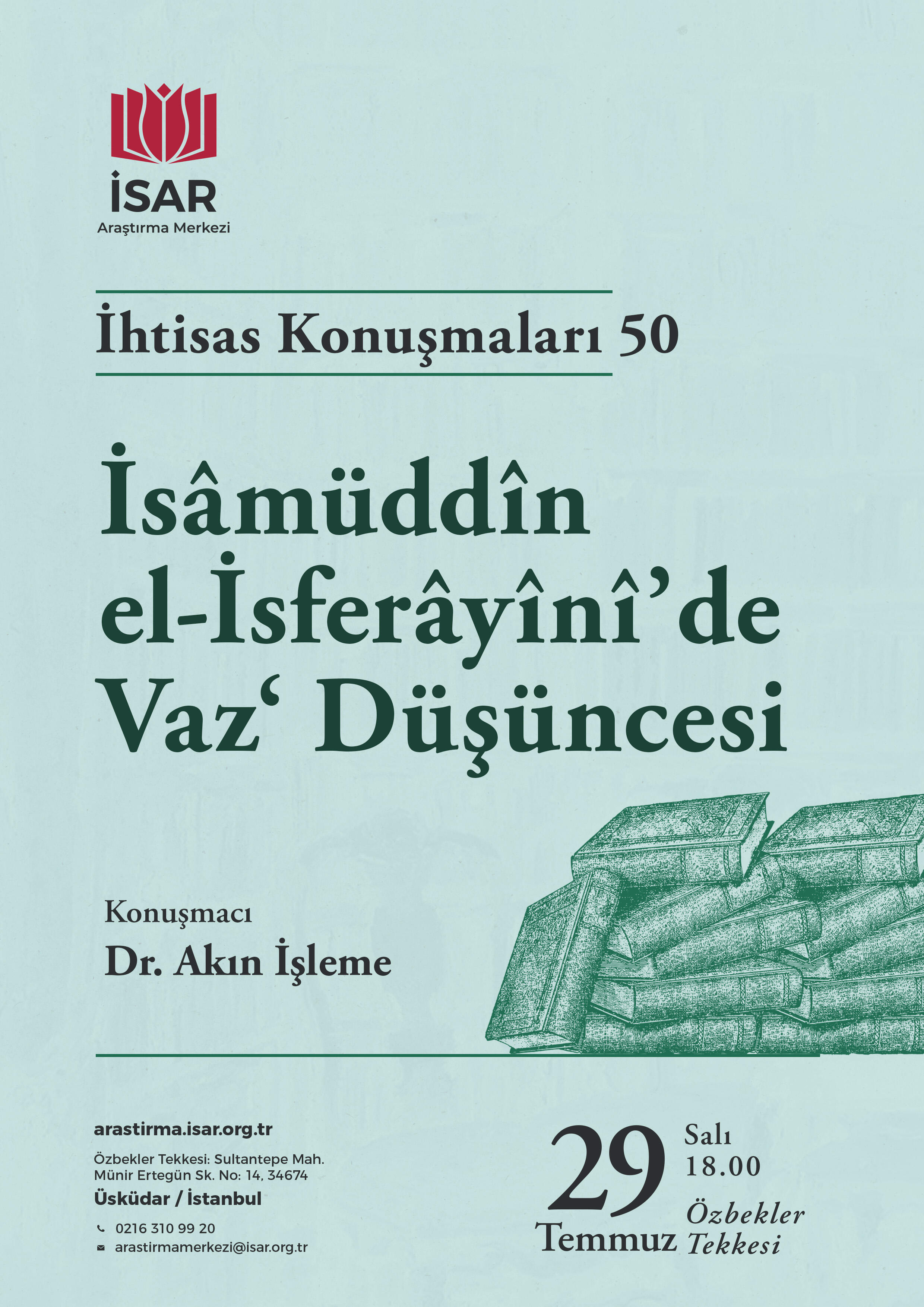The Theory of Wadʿ in the Thought of Isām al‑Dīn al‑Isfarāʾīnī
We will host Akın İşleme in the 50th session of the Specialist Talks series organized by the ISAR Research Center. Building on his doctoral dissertation, İşleme will present his findings on “The Theory of Wadʿ in the Thought of Isām al‑Dīn al‑Isfarāʾīnī.”
Adud al‑Dīn al‑Ījī’s al‑Risāla al‑Waḍʿiyya (d. 756/1355) is the first independent treatise devoted to the phenomenon of waḍʿ (linguistic stipulation/convention). Composed in the mid‑fourteenth century, it quickly garnered considerable attention, and the commentaries it inspired laid the groundwork for an entirely new body of scholarship. Among these commentaries, Isām al‑Dīn al‑Isfarāyīnī’s Sharḥ al‑Risāla al‑Waḍʿiyya (d. 951/1544) became one of the most widely consulted, both because it engages with and cites earlier waḍʿ commentaries and because its assessments, stressing verification (taḥqīq), bring fresh analytical rigor to waḍʿ‑related questions.
Despite its importance, research that locates Isām al‑Dīn and his predecessors within the broader waḍʿ tradition—and that traces how waḍʿ evolved from a conceptual phenomenon into an autonomous discipline—remains scarce. In our study, we designate as the “early waḍʿ literature” those works composed up to the point when waḍʿ began to be treated as a discrete science, a period that includes Isām al‑Dīn himself. Undoubtedly, Isām al‑Dīn al‑Isfarāyīnī is one of the era’s most pivotal figures. Examining his thought on waḍʿ allows us to track the transformation of the waḍʿ corpus both at the level of individual issues (masāʾil) and at the level of literature as a whole. Furthermore, the fact that many contributors to waḍʿ—including Isām al‑Dīn—belonged to the same intellectual milieu and were linked by teacher‑student relationships indicates that the subject was developed within a specific period by a distinct cohort of scholars.
Sosyal Medyada Paylaş Google Takvime Ekle + iCal / Outlook export


